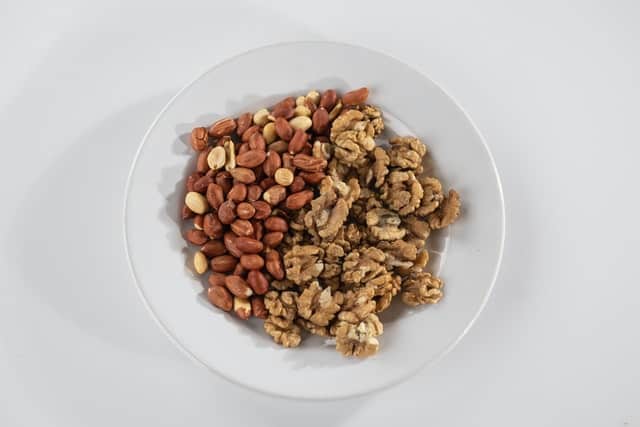These Benefits of Protein and Fiber in Your Diet

What you eat directly impacts your health, so choosing a healthy diet is a decision that comes with incredible benefits. Protein and fiber are vital components of a good diet. Here are the benefits of protein and fiber.
The Importance of Protein and Fiber in Your Diet
Eating a healthy diet highlights all the essential nutrients you need. Fiber and protein are crucial components that make a stable diet that you should have in plenty. Pairing these with a regular workout will give you energy and strength. Besides, a diet rich in fiber and protein will curb your cravings, limiting your calorie consumption and keeping you healthy in the process. So, packing those protein powder cookies for your snacks at work could be the perfect decision.
Protein is required in the body in large amounts compared to minerals and vitamins. You should supplement your body with enough protein by adopting a protein-rich diet. Embracing protein in plenty could help you build a healthy diet to lose weight.
Dietary fiber includes plant foods your body cannot absorb or digest. Unlike food components like carbohydrates, proteins, and fats, which the body breaks down and absorbs, fiber is not digested by the body. It passes down through the stomach and small intestines out of your body. Commonly, fiber is classified as soluble, which means it dissolves in water, or is insoluble, so does not dissolve.
Benefits of Fiber in Your Diet
Taking a high-fiber diet:
- Normalizes Bowel Movements
Fiber increases the size of your stool. A bulky stool passes easily, preventing constipation. If you have a watery, loose stool, fiber will help solidify it because it absorbs water to add bulk to the stool.
- Maintains Bowel Health
Adopting a healthy balanced diet with enough fiber protects your bowel health. The fiber in your diet lowers the risk of developing hemorrhoids and pouches in your colon. Studies have shown that having a high-fiber diet lowers the risk of colorectal cancer. Experts are still searching to learn how it can prevent diseases of the colon.
- Lower Cholesterol Levels
The soluble fiber in beans, flaxseed, oats, and bran can help lower blood cholesterol. It lowers bad cholesterol (low-density lipoprotein). High-fiber foods could also have heart health benefits, including reducing inflammation and blood pressure.
- Controls Blood Sugar Levels
People with diabetes require healthy diet plans rich in fiber to slow the absorption of sugar. This improves sugar levels in the blood. Taking a healthy diet with plenty of fiber can also lower the risk of developing type 2 diabetes.
- Helps You Live Longer
More studies have shown that boosting your dietary fiber intake could reduce the risk of dying from cancers and cardiovascular diseases.

The Benefits of Protein in Your Diet
Here is the importance of a healthy diet protein.
- Growth and Maintenance
You need protein for the maintenance of tissues and growth. In normal circumstances, the body breaks down the amount of protein it needs to repair and build tissues. In other times, it could break down more protein than it can create, increasing your body’s needs.
- Balances Fluids
Healthy diet foods rich in protein also help to maintain fluid balance and regulate body processes. Lack of sufficient protein could cause failure to keep blood in your vessels as the fluid is forced into space cells. As this fluid continues to build up, you experience edema or swelling, especially in the stomach region. This manifests as a form of protein malnutrition commonly referred to as kwashiorkor that develops when you consume enough calories but insufficient protein.
- Boosts Immunity
Taking protein also bolsters immunity. It helps in the formation of antibodies or immunoglobulin that fights infection. Antibodies are proteins that protect the body from invaders like viruses and bacteria. When these harmful invaders enter the cells, the body produces antibodies that eliminate the invaders. Without antibodies, bacteria and viruses would multiply freely and overwhelm your body. Therefore, taking enough protein could protect you against disease-causing microorganisms.
- Provide Energy
Protein can supply energy for your body. It’s made up of four calories per gram, the equivalent amount of energy you get from carbs. However, you don’t want to solely rely on protein for energy as it’s an essential nutrient used throughout the body in other functions.
When fasting, the body breaks down protein to supply energy. Your body will also use amino acids from skeletal muscle when you undergo a shortage of carbohydrates. This often happens in times of exhaustive exercise or when you lower the consumption of calories in general.
Conclusion
Staying healthy begins with making the right choices about your diet. Protein and fiber are among the most important elements in your diet that you should consume in sufficient amounts. They can help you avoid diseases and also provide enough energy for your day-to-day errands.
Does your diet plan include enough protein and fiber? Share some diet tips in the comments below.








